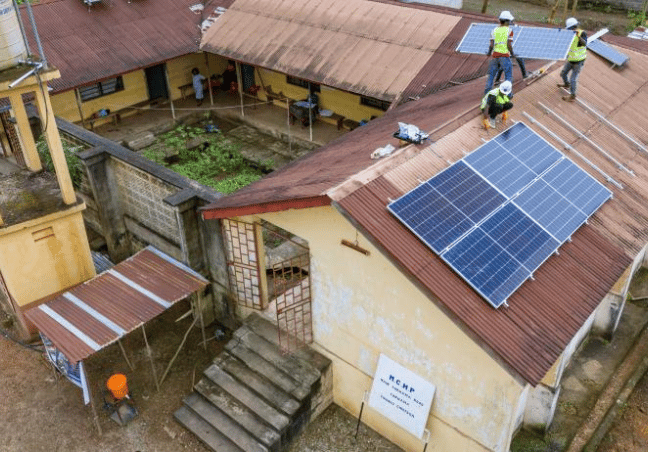Zambia has launched two United Nations-supported projects to provide sustainable energy solutions for health facilities and improve healthcare delivery. The $7 million Solar for Health Project, supported by the Global Fund, will connect 427 health facilities to solar power, thereby reducing power outages that disrupt essential services.
In Sub-Saharan Africa, a total of 25,000 healthcare facilities are entirely without electricity, while around 70,000 health centres experience an unreliable electrical supply.
In Zambia, the $250,000 SDG-Energy Transition Project will foster inclusive clean energy enterprises. These initiatives aim to ensure resilient and uninterrupted healthcare access.
Our take: Health facilities in Africa require reliable power to save lives as ever more renewable energy is rolled out. Without electricity, critical services such as vaccine storage, lighting, and life-saving equipment are compromised… Read more (2 min)
Supply challenges already hinder vaccine delivery in Africa, but cold chain issues further exacerbate access gaps and hinder vaccination efforts. Solar Direct Drive (SDD) refrigerators, which differ from traditional solar vaccine refrigerators that store energy in batteries, have proven beneficial for many African nations.
The SDD refrigerator is powered directly by photovoltaic (PV) solar panels, eliminating the need for batteries. When sunlight is available, the system freezes water or another phase change material within an internal cold storage bank.merging
Our quarterly survey of health tech in Africa includes 3D telemedicine vans bringing expert care to remote areas and PROMPTS, an AI-powered SMS service offering maternal health support to millions of Kenyan women.
Our take: The potential of new technologies must be exploited further if the continent is to cope with the new health challenges arising from climate change…Read more (2 min)
The global philanthropic organisation, Gates Foundation, has experienced the highest growth in senior staff among major health organisations in Africa. Our analysis of the past 12 months reveals a 16% increase in senior staff. Currently, it has a $7 billion investment in Africa, primarily on health initiatives, which likely accounts for this expansion.
The foundation's major funding areas include polio eradication, HIV, tuberculosis, and malaria. In tuberculosis, for example, the foundation has invested heavily in a promising vaccine candidate, M72, which is currently on its third trial and could be the first new TB vaccine in over 50 years.
The Gates Foundation operates in 14 countries, similar to Path, a global non profit health organisation, and surpassing the Africa-based philanthropic health institution Amref, which operates in only six countries.
Our take: Environmental change will heighten the need for new solutions in Africa. Unconventional stakeholders, including philanthropies and startups, must step up…Read more (2 min)
____________________


A mother from Cameroon uses a dual active ingredient (dual AI) insecticide-treated mosquito net in her home. Dual AI nets, which combine two distinct classes of insecticides, ensure that mosquitoes resistant to one type are still killed by the second.
Events
🗓️ Attend the Africa Health Business Symposium in Nigeria (July 16)
🗓️ Participate in the World Health Expo in Kenya (October 6)
Jobs
🗑️Be a Manager, Health Care Waste Management, Institute of Human Virology (Nigeria)
🧑⚕️Apply to be a Infection Prevention and Control Manager at Mediclinic (South Africa)
🩺Be the next Clinical Governance Facilitator at NHS Ayrshire & Array (Uganda)
Seen on LinkedIn
Joshua Nderitu, a medical doctor at Machakos County, says, “Noncommunicable diseases are the leading cause of death globally, but many of the risk factors are within our control. As health professionals, leaders, and community advocates, we have a shared responsibility to raise awareness and inspire action.”
____________________


